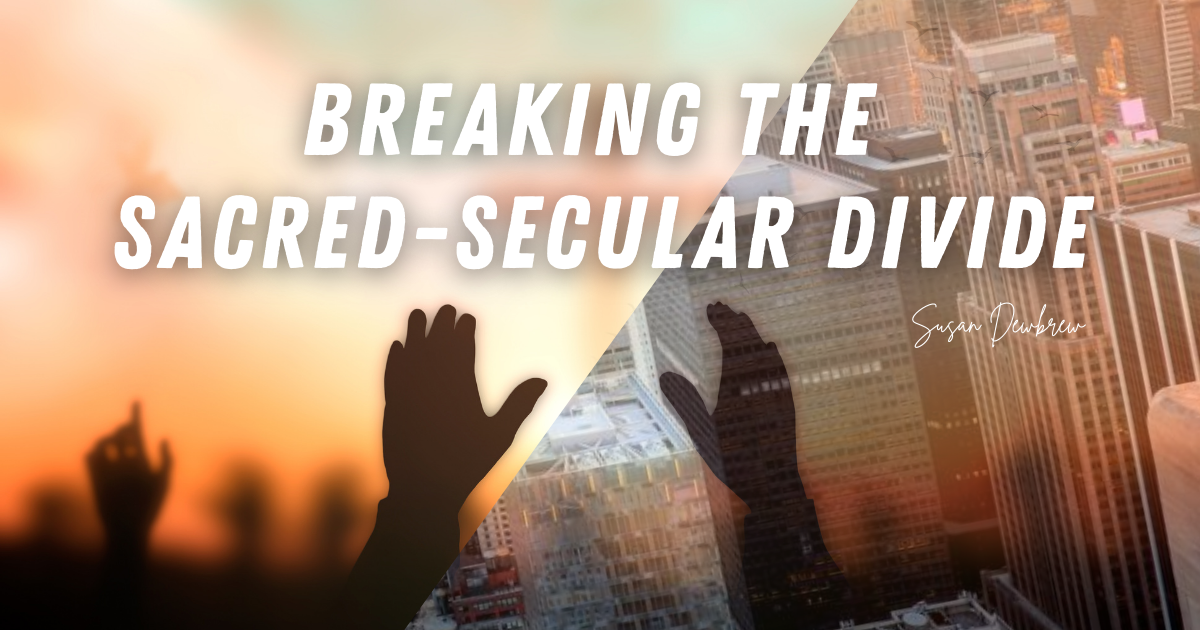Breaking the Sacred — Secular Divide
When the Lord first pushed me from traditional church ministry into the business world, I felt like I was crossing a spiritual border—leaving the "sacred" realm for the "secular" one. Like many believers, I had unconsciously divided life into two categories: kingdom work (ministry) and worldly work (everything else).
I was wrong about almost everything.
What I discovered in that transition changed not only how I do business but how I understand God's heart for His entire creation. Today, I want to challenge one of the most destructive lies that has weakened the Church and limited our impact in the world: the myth of the sacred-secular divide.
The False Separation
In church culture there is an unspoken, yet very clear, hierarchy of work:
Sacred (Good):
Pastor, missionary, worship leader
Full-time ministry
Church-related activities
Spiritual conversations
Prayer and Bible study
Secular (Necessary but Lesser):
Business, law, medicine, education
"Regular" jobs
Marketplace activities
Practical conversations
Paying bills and making money
This worldview creates several devastating problems:
It makes most believers feel like second-class citizens in God's Kingdom
It limits God's influence to Sunday mornings and Bible studies
It abandons the marketplace to worldly principles
It creates spiritual schizophrenia where people live dual lives
It wastes the majority of our waking hours on supposedly "unspiritual" activities
But here's what I've learned: In God's heart and mind, there is no separation between sacred and secular. It's all sacred.
God's Perspective on Work
When God placed Adam and Eve in the garden, He didn't give them "ministry" jobs. He gave them dominion over creation—they were to serve, protect, and steward the earth. (Serve = “tend,” protect = “keep,” steward = “be fruitful and multiply.”)
This was their worship. This was their sacred calling.
Work itself—creative, productive, life-giving work—is a reflection of God's own nature. He is a Creator, a Builder, a Designer. When we engage in honest labor that serves others and develops the earth's potential, we're participating in His ongoing creative work.
The problem isn't work itself. The problem is when work becomes disconnected from its divine purpose, when it serves only selfish gain rather than the common good, when it exploits rather than elevates human dignity.
My Marketplace Ministry Discovery
When I entered real estate, I initially felt guilty—like I was leaving ministry for money. At that point, we would have gone bankrupt if I didn’t. But as I began applying Kingdom principles to business, something remarkable happened: I discovered that the marketplace could be one of the most powerful venues for ministry.
Think about it: Where else do you have extended, intimate conversations with people about their deepest dreams and fears? Where else do you handle the largest financial transaction of their lives? Where else do you literally help people find "home"?
Real estate became my mission field. Every client interaction became an opportunity to demonstrate Christ's love through excellent service, honest communication, and genuine care for their well-being. I wasn't preaching sermons, but I was living the Gospel.
And here's what amazed me: it worked. Kingdom principles didn't handicap my business—they elevated it. Integrity attracted clients. Servant-hearted service created loyalty. Putting people's needs above profit generated more profit than I'd ever imagined.
The business became a living demonstration that God's ways actually work in the "real world."
The Integration Imperative
What I learned is that God doesn't want us to do ministry and business as separate activities. He wants us to do ministry through business. He wants every sphere of human activity permeated with His presence, His values, His transforming love.
This doesn't mean conversations have to include a Bible verse or transactions must end with prayer. It means bringing the character of Christ—His honesty, compassion, excellence, and service—into every interaction.
In Real Estate, this looks like:
Telling clients the truth even when it costs a sale
Serving their interests above your commission
Treating everyone with dignity regardless of their budget
Using your expertise to educate and empower, not manipulate
In Any Business, this might mean:
Paying fair wages even when you could pay less
Creating products that truly serve people's needs
Building company culture on respect and growth
Using success to bless your community
The Paul Model
The Apostle Paul understood this integration. He was a tentmaker—not just to pay bills, but as an integral part of his ministry strategy. His business relationships opened doors for the Gospel. His excellent craftsmanship became a testimony to God's character. His work funded the advancement of the Kingdom.
Paul didn't see tentmaking as a distraction from ministry; he saw it as ministry itself when done with Kingdom purposes and principles.
This is exactly what God has shown Gregory and me. The resources developed through Dewbrew Realty fund Kingdom Brewing where we provide inner healing and prophetic ministry, as well as develop resources that empower others to connect with the Lord and achieve their God-given design. The business serves the mission, but the business is also part of the mission.
Transforming Systems from Within
When believers abandon the marketplace to pursue "full-time ministry," we inadvertently abandon the very systems that shape our culture. We retreat into Christian bubbles while the institutions that influence millions—business, education, entertainment, government, technology—operate without Kingdom influence.
But God's strategy has always been infiltration, not isolation. He places His people in every sphere to be salt and light, to demonstrate His ways, to gradually transform systems from within.
This requires believers who:
Excel in their fields through integrity and skill
Maintain their Christian character under marketplace pressures
Find creative ways to serve others through their work
Use their influence to advance justice and human flourishing
Model a different way of doing business, education, politics, or art
The Ripple Effect
When you begin operating with Kingdom principles in your work, the impact extends far beyond your immediate sphere:
Personal Level: You experience the joy of integrated living—no more compartmentalized faith
Family Level: Your children see that faith works in all areas of life
Company Level: Your integrity influences workplace culture
Industry Level: Your success demonstrates that ethical practices can be profitable
Community Level: Your business becomes a blessing to your local area
Cultural Level: You contribute to the gradual transformation of marketplace norms
Breaking Down the Walls
It's time to demolish the artificial wall between sacred and secular. Here's how:
1. Redefine Your Work as Ministry Your job is your primary mission field. Ask: How can I serve God and others through this work?
2. Bring Kingdom Values to Everything Let honesty, excellence, compassion, and service characterize all your professional interactions.
3. Seek God's Guidance for Business Decisions Pray about hiring, pricing, partnerships, and strategic direction just as you would pray about "spiritual" matters.
4. Use Success to Advance the Kingdom Like Paul's tentmaking funded missions, let your professional success resource Kingdom purposes.
5. Be Excellent for God's Glory Do your work so well that it reflects the character of the God you serve.
The Vision Realized
Imagine a world where Christians in every field—from janitors to CEOs, from artists to engineers, from teachers to politicians—operated with full Kingdom consciousness. Where every industry was gradually transformed by people who understood their work as sacred calling.
This isn't idealistic dreaming. This is God's original plan. This is how His Kingdom advances—not just through Sunday sermons, but through Monday morning meetings conducted with integrity, Tuesday afternoon sales calls made with genuine care, Wednesday night community involvement that demonstrates love, and weekend family time that models healthy relationships.
The sacred-secular divide is one of the enemy's most successful lies. It has limited God's people, weakened our cultural influence, and impoverished our understanding of calling.
But the truth is setting us free: All of life is sacred when lived for God's glory. All work is ministry when done with love. All spheres are mission fields when we have eyes to see.
What would change in your work life if you truly believed your job or daily activities were a sacred calling? How might God use your sphere of influence to advance His Kingdom if you fully integrated your faith with your work?
Blessings,
Susan 😊
For more insights on living out Kingdom principles in everyday life, check out our resources at KingdomBrewing.com.

